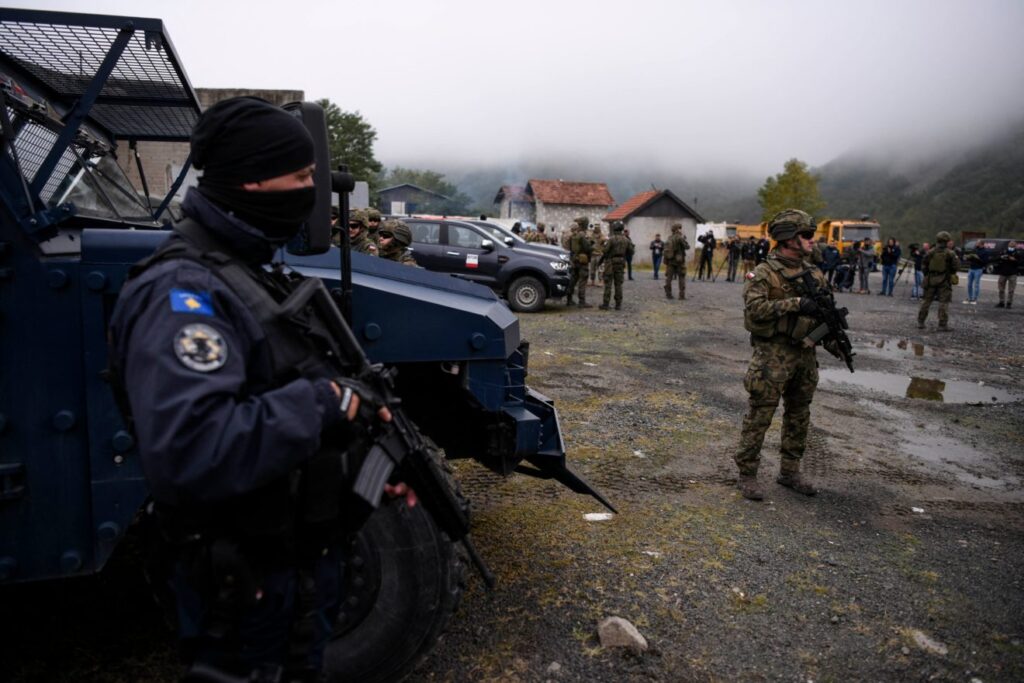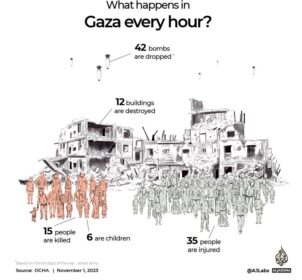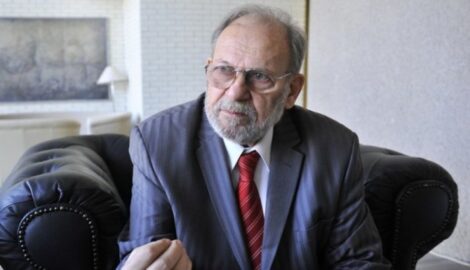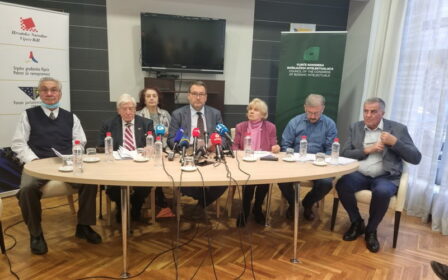Imminent conflict in the Western Balkans

There are alarming echoes of the 1990s sweeping across the Western Balkans today. And as talks on the European Union’s enlargement into the region stall, there is a disquieting common factor in the crises facing Bosnia and Herzegovina, Kosovo, and Montenegro: The Serbian government is actively backing efforts to destabilize them, supporting internal proxies, and threatening their sovereignty and territorial integrity.
Coupled with Russian meddling, EU division and NATO weakness, this is proving to be a lethal mix. Progress that was made in the region in the 2000s — toward peaceful, prosperous, multiethnic states — is being undone, and the space is wide open for troublemakers. The time has come for NATO and the EU to work together and take action to arrest decline and protect the progress that was made.
In September this year, on the border with Kosovo, Serbia deployed armored vehicles and warplanes, challenging the post-1999 demilitarization. In Bosnia and Herzegovina, Bosnian Serb secessionist politicians, who are politically and financially dependent on Serbia, are unilaterally and unconstitutionally withdrawing from state-level institutions established as a result of the Dayton peace accords, while they conduct special police exercises in an overt display of strength. In Montenegro, Belgrade stokes religious divisions, contributing to an increasingly toxic political climate that has reignited questions of foreign policy orientation, ethnicity and faith.
These destabilizing actions are all underpinned by the concept of the “Serb world” — an idea alarmingly similar to former President Slobodan Milošević’s “Greater Serbia” — now being openly championed by the country’s interior minister, Aleksandar Vulin. Here, one can see clear traces of the 1990s, during which the Milošević regime engineered a succession of wars, culminating in ethnic cleansing and genocide.
This time, however, the situation is exacerbated by further factors. Foremost among these is active meddling by Russia. The Kremlin backed a coup attempt in Montenegro in 2016 and continues to bar Kosovo from full international recognition at the United Nations Security Council. It has also supported paramilitaries and issued open threats in response to any suggestion of Bosnia joining NATO, sought to undermine the high representative responsible for overseeing the progress of the Dayton accords and is backing secessionists and nationalists across the region.
Then there is the problem of a disunited EU. While Bulgaria remains the sole veto against membership talks for North Macedonia and Albania, Hungarian Prime Minister Viktor Orbán has offered a platform for dangerous Islamophobic and anti-Bosnian rhetoric and historical revisionism that distorts established facts about the 1990s wars in former Yugoslavia. With such ideas in open circulation, the EU is unable to rise to the challenge of preserving peace and stability in the Balkans.
Completing the hat trick — and encouraged by the chaotic withdrawal from Afghanistan — is the perception that NATO is impotent and that now is a good time to challenge its posture in the region.
As such, it is crucial that we collectively take action. First, the region must be approached as a coherent whole: Western policy must take into account that crises and tensions in Bosnia and Herzegovina, Kosovo and Montenegro are all connected and that relying on Serbia as a pillar of stability in the Western Balkans is, sadly, a misguided policy.
Serbia is no longer a helpful ally in resolving political problems in the Balkans; rather, it is a prime cause of them. Therefore, our approach must shift to one of containment, holding President Aleksandar Vučić and the Serbian government to account for provoking instability.
Second, NATO must ensure its presence in the region is substantial enough to act as a deterrent to violence. That means increasing troop numbers. The EUFOR stabilization force in Bosnia and Herzegovina only has about 700 members, a meager contingent that is unlikely to contain any significant instability. Kosovo should also be admitted to NATO’s Partnership for Peace program along with Bosnia, and be welcomed into NATO as soon as possible.
Third, the EU should wake up to the threat at its borders. Polite words will not get us anywhere. A robust response underpinned by the threat of sanctions is the only message that will get through. Threats of violence, ethnic nationalism and genocide denial should be met with clear and swift condemnation rather than the EU’s habitual awkward silence. Nor should statements continue to be hedged in the language of “both sides.”
Some European politicians may worry that such a robust response will only serve to alienate the Western Balkans, but this fear is unfounded. Russia will not replace the EU. The youth of the region are not leaving for Moscow but for the EU. When European leaders stated in 2003 that “the future of the Balkans is within the European Union,” they were right. The question is how much more strife the region will have to go through before it gets there.
If European leaders like Hungary’s Orbán or Slovenia’s Janez Janša block this turn toward principled policy, then progressive governments should coordinate, along with the U.S. and the U.K., and press ahead in the short term. In the long term, European countries will need to build a strategy and policy that all 27 members can agree on — something the U.S. should be working to encourage. If EU membership for Western Balkans countries is not in the cards, then interim steps, such as single market and customs union membership and increased financing, should be considered.
Be in no doubt, conflict in the region is no longer unthinkable — if we do not act, it is simply a matter of time. Russia knows this and is deliberately testing NATO’s resolve and capabilities. If NATO and the EU are unable to stand up for stability in the Balkans — not so much their backyard as a courtyard in the very heart of their house — then there is little prospect of them doing so anywhere else. And in the absence of credible Euro-Atlantic engagement, it is not just the Balkans that will suffer.
BY ARMINKA HELIĆ AND ANTHONY MANGNALL
SOURCE: POLITICO



